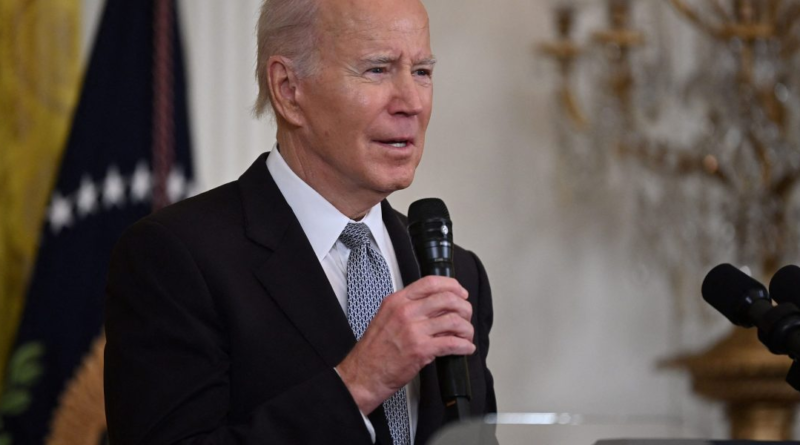Joe Biden issues his first veto in a prelude to future battles with the newly Republican-controlled House
President Joe Biden issued the first veto of his presidency Monday in an early sign of shifting White House relations with the new Congress since Republicans took control of the House in January — a move that serves as a prelude to bigger battles with GOP lawmakers on government spending and the nation’s debt limit.
Biden sought to kill a Republican-authored measure that would ban the government from considering environmental impacts or potential lawsuits when making investment decisions for people’s retirement plans. In a video released by the White House, Biden said he vetoed the measure because it “put at risk the retirement savings of individuals across the country.”
His first veto represents a more confrontational approach at the midway of Biden’s term in office, as he faces a GOP-controlled House that is eager to undo parts of his policy legacy and investigate his administration and his family. Complicating matters for Biden, several Democratic senators are up for re-election next year in conservative states, giving them political incentive to put some distance between them and the White House.
The measure vetoed by Biden ended would have effectively reinstated a Trump-era ban on federal managers of retirement plans considering factors such as climate change, social impacts or pending lawsuits when making investment choices.
The veto could also help calm some anger from environmentalists who have been upset with the Biden administration for its recent decision to greenlight the Willow oil project, a massive and contentious drilling project in Alaska.
“The president vetoed the bill because it jeopardizes the hard-earned life savings of cops, firefighters, teachers, and other workers,” White House spokesperson Robyn Patterson said.
But critics say so-called environmental, social and governance investments allocate money based on political agendas, such as a drive against climate change, rather than on earning the best returns for savers. Republicans in Congress who pushed the measure said environmental or social considerations in investments by the government are just another example of being “woke.”
“In his first veto, Biden just sided with woke Wall Street over workers,” House Speaker Kevin McCarthy, R-Calif., tweeted on Monday. “Tells you exactly where his priorities lie.” He said “it’s clear Biden wants Wall Street to use your retirement savings to fund his far-left political causes.”
Biden’s veto is likely to prevail. Just three Democrats in Congress — one in the House, and two in the Senate — supported Republicans in the matter, making it unlikely a two-thirds majority in both chambers could be assembled to overcome Biden’s veto.
Rep. Jared Golden, D-Maine, was the sole Democrat to back the resolution in the House, while Sens. Jon Tester, D-Mont., and Joe Manchin, D-W.Va., supported it in the Senate. Golden is a perennial target of Republicans seeking to oust him from his conservative district, while Tester and Manchin are both up for re-election next year.
“This administration continues to prioritize their radical policy agenda over the economic, energy and national security needs of our country, and it is absolutely infuriating,” Manchin said in a statement.
Though Biden swiftly vetoed the investment resolution, other measures coming from Capitol Hill in the weeks and months ahead could be a tougher call for the White House.
The administration initially signaled that Biden would reject a Republican-authored measure that would override a crime measure passed by the District of Columbia Council, but the president later said he would sign it. The White House has also yet to indicate what Biden will do with a measure — passed unanimously in both chambers of Congress — that would declassify U.S. intelligence information about the origins of COVID-19.
Biden’s immediate predecessor, Donald Trump, vetoed 10 bills during his term in office, while Barack Obama vetoed 12, according to the the American Presidency Project at the University of California, Santa Barbara. Both had one of their vetoes overridden by Congress.
The president with the most vetoes was Franklin Delano Roosevelt — who was elected to four terms before a constitutional amendment limited all presidents to two — with 635 vetoes. Six U.S. presidents never vetoed any legislation in office.



